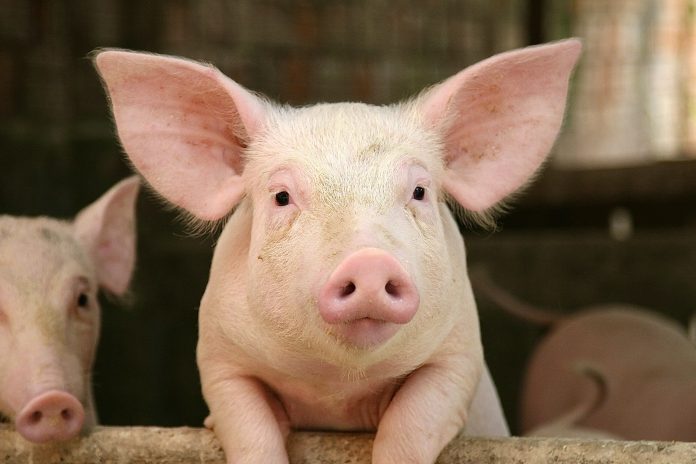
Victory! New Jersey Bans Pig Gestation & Veal Crates After Governor Murphy Signs Bill Into Law
You can help all animals and our planet by choosing compassion on your plate and in your glass. #GoVeg
RELATED ARTICLES
Banning Cruelty: New Legislation Aims To Ban Octopus Farming In The U.S.
New bipartisan legislation has just been introduced in the U.S. to ban commercial octopus farming and prohibit imports of farmed octopus from foreign countries.
The...
Outrage In Yellowstone! Grizzly Bear Killed By Wildlife Officials & Left With Head & Paws Cut Off
Photo by: Trisha McFarland / Cowboy State Daily
A photo of a dead grizzly bear with its head and paws cut off has caused an...
Inside Florida’s Illegal Horse Meat Trade: Undercover Footage Shows Racehorse Being Shot & Butchered
A heart-wrenching discovery of illegal horse slaughter has emerged, with video footage exposing the tragic killing of a racehorse named 'Funny Biz,' who was...
Popular stories
!! Coronavirus
Animal Welfare Coalition Calls On World Health Organization To Focus On Testing On Humans Not Animals For COVID-19 Remedies
In a joint statement released today by Cruelty Free International, Cruelty Free Europe, Eurogroup for Animals, and People for the Ethical Treatment of Animals Foundation (PETA), the animal protection organizations stress...
Featured
WAN Exclusive With Animal Place Sanctuary Which Urgently Needs To Find Homes For 6 Cows Being Saved From Slaughter In Northern California
Photos by: Marji Beach, Animal Place
What started as a heartwarming story about the rescue of two 20-year-old cows, Honey and Babe, by Animal Place Sanctuary, a nonprofit...
US News
Taco Bell Goes ‘Beyond’ In New Partnership With Beyond Meat Bringing Plant-Based Options To The Fast-Food Chain In The U.S.
Taco Bell‘s CEO Mark King recently shared some delicious news for the new year in a video featuring King's voice as a talking potato,...


